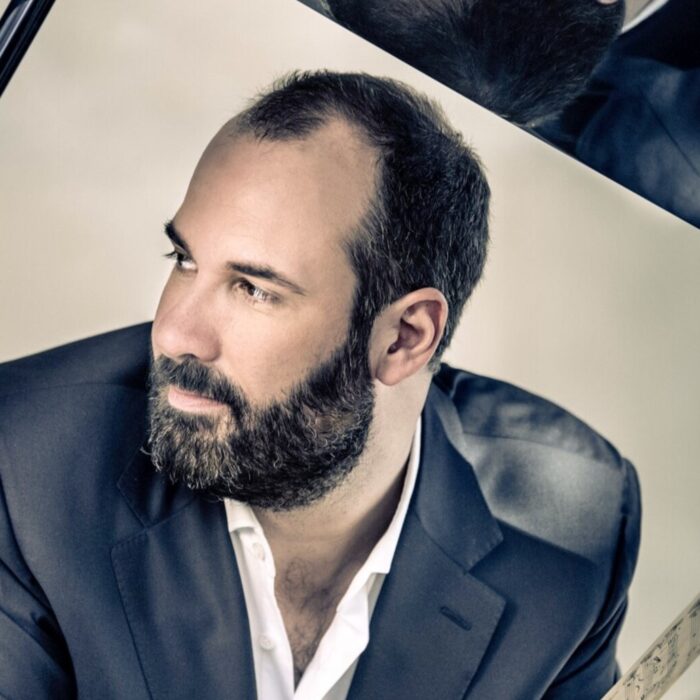
Q & A: Guido Loconsolo On Specializing In Mozart, Figaro & Opera Naples
By Francisco SalazarGuido Loconsolo is one today’s leading bass-baritones singing all over the world in every major opera house. His career has seen him perform many leading roles from Baroque composers, Verdi, Puccini, and Mozart, a composer he specializes in and wants to continue singing.
This week he makes his Florida debut performing at Opera Naples under the direction of Ramon Tebar. In this new production, he will sing the title role in Mozart’s”Le Nozze di Figaro,” bringing his famed interpretation to the United States for the first time.
As he prepares his debut, Loconsolo spoke to OperaWire about Mozart, Figaro, and his upcoming role debut at Macerata.
OW: Is this your first time singing with Opera Naples?
GL: It will be my first time in Florida. I’ve been in the U.S at the Metropolitan Opera, Napa Valley, but never in Florida, so I am excited. I can’t for the warm weather, the people, and I can’t wait to work with the great colleagues in the cast because I’ve worked with some of them already and they are great artists. It’s going to be a great “Nozze di Figaro.”
OW: You’ve performed the role of Figaro over the past few years. What is so special about this role and what is great about singing Mozart’s music?
GL: What is very revolutionary about this role is the fact that Figaro represents the lower class. He is a servant of the Count. But Mozart as a composer pushed the leads further and wanted to make the servants the leads of the story and that is completely revolutionary in Austria in the 18th century. This is the beginning of a revolution and for me this is interesting because these works started something in history that would lead up to the French revolution.
Another thing is that Figaro used the whole story to mock the Count. But it is the girls who end up deciding everything. They are the ones who control the situation and they put Figaro in a bad situation, making him think that Susanna is cheating on him.
OW: What brings you back to Figaro and how has the character evolved for you over the years?
GL: Every time I sing this role, I always find new details which everything clearer. I discover something new in the story, the little comas, and dots that are written in the score. Sometimes you ask new questions and you have to be able to find new answers. In the beginning, you just study the music and then you put the words in the music and then you focus on understanding what you are singing and remember the words and notes. Once the character is ready and done many times, you can really enjoy the nuances of the character. And I debuted this role in 2005, so it has been 13 years.
OW: What are some of the vocal challenges of this role?
GL: Vocally the range is very wide and it has a high F. So it is not a normal bass-baritone range and that wide range makes its challenging. And the third aria is very challenging because there are many words to say in the right order and the music is very furious. There is a lot of recitato and some of the arias are very legato. So there are places where you have to be very delicate technically.
OW: You have performed the Mozart trilogy, “Così fan Tutte,” “Don Giovanni’ and “Le Nozze di Figaro.” How does “Figaro” figure into these operas and your Mozart repertoire?
GL: They are three very different works. They are bunched together but in my point of view, they are three very completely operas. “Don Giovanni” is dark and antisocial. “Così fan Tutte” is cynical and lovely and “Nozze di Figaro” is practical. “Nozze” has the practical situation where this guy wants to get married and they have to find out how they will do it. It’s very modern.
OW: So after this, you are doing Papageno, a role debut in Macerata as well as a house debut. Tell me about your preparations for this role?
GL: I will be using the second half of May to study this role because it is quite long and it is in German, which is a different language for me. It’s going to be a good debut because I am trying to specialize in Mozart and “Die Zauberflöte” is one more Mozart for me and my first German role.
OW: Tell me about your process when learning a new role?
GL: Before I accept, I look at the range and the tessitura to double check if I can actually do the role and if it’s good for my voice. Then I begin my study process, during which I always start with the music and once the music is in your head, then you start singing the right words with the score. As soon as you can leave the score, the better it will be. You have to repeat it as much as possible. I work with my pianist who helps me with the music.
OW: Macerata is outdoors. How does it affect the way you perform and do you have to adjust your voice when performing in an outdoor space?
GL: It depends, but in Macerata I was told the acoustic is very good so I think it doesn’t really change. Sometimes singing outdoors can be a problem because when we sing, it is linked with the vibrations we feel. So we don’t hear the voice and you follow the vibrations that project, and while you sing you understand you are doing it well. Sometimes outdoors you don’t have the reverb and the voice doesn’t come back to your ears and that can always be a problem. But these arenas are made with natural acoustics.
OW: Do you have a favorite moment in “Die Zauberflöte?”
GL: I always love the Queen of the Night even if its the most commercial, but it is very shocking and very difficult. You need a pretty dramatic voice to sing the small but very high role. But I am looking forward to digging in more into the score.
OW: You are specializing in Mozart, so is there one Mozart role that you haven’t sung that you would like to do?
GL: At the moment I have sung all the lead bass-baritone roles Mozart wrote. I sang Giovanni, Guglielmo, “Clemenza di Tito,” Figaro, the Count in “Figaro.” We will see because I always accept suggestions by conductors and directors and if the occasion comes I take it. We’ll see what the future holds.


